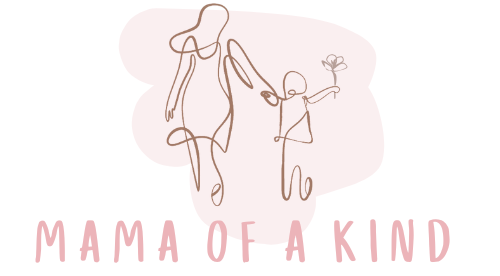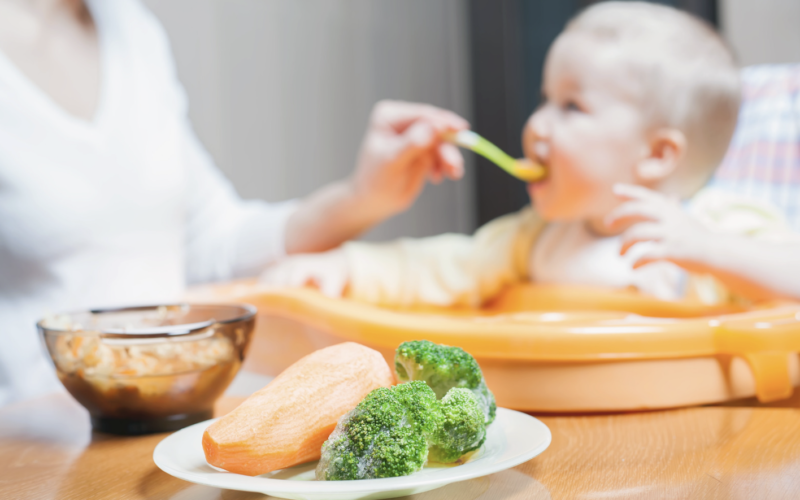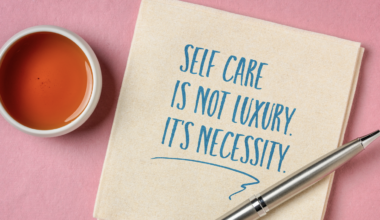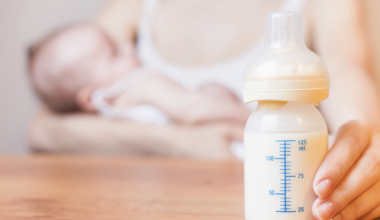The usual guideline in North America is to start solid foods when your baby is 4-6 months of age. The earlier stage of 4 months is typically recommended to slowly introduce allergens to your baby’s diet, especially if there’s a history of food allergies in the family.1
Nowadays, there are two ways to introduce solid foods to your baby; feeding them purees or using the BLW (baby led weaning) method.
Like many of us, you’ve probably spent a lot of time looking up recipes or certain foods you can feed your child depending on their age. But regardless of their age and the recipes, there are 3 considerations to keep in mind.
1. Salt/Sugar

Anything with added sugars should be avoided; juices, cookies, sugary drinks, etc. Many baby purees sold in jars or pouches have added sugars in them, and in my opinion, with no reason. Most have fruits that are mixed in with the vegetables, so the added sugar seems a bit unnecessary. Some of those rice husks have added sugar in them as well. It’s therefore important to read the nutrition labels of each product.
It’s recommended that added sugars can be introduced to your child at 2 years of age. This is due to the fact that sugar is linked to an increased risk of obesity or overweight and can also contribute to tooth decay.
Whole fruits with their added fibre are better than fruit juices. Fruit juices with added sugars have little to any nutritional benefits.
The AAP (American Academy of Pediatrics) recommends that a child aged 1-3 limits their intake to 4 ounces of 100% fruit juice per day.2 The rest should be substituted with water or milk, depending on their age.
Salt is another one to try to avoid. Babies’ kidneys are still immature and can’t tolerate salt as much as adults can. There’s also evidence that shows that there’s a link between infant sodium intake and cardiovascular issues and high blood pressure later on in life.3
It’s recommended to limit the salt intake to 110 milligrams if your baby is under 6 months of age, and 370 milligrams from 7-12 months.4 Do keep in mind that formula and breastmilk already contain sodium.
2. Canned Foods

You may have or may have not heard of this one before. But, a lot of canned foods contain BPA in them.
BPA (bisphenol A) is a chemical that is used in linings, lids and caps.5 It’s found in many plastics and canned foods. Some companies stopped using BPA in their products. You would know this by seeing a “BPA-free” stamp on their product.
BPA can leach into the foods or liquids in which they are contained. Multiple studies have been conducted on this matter because BPA has become widely used. Studies have demonstrated that BPA exposure may increase the risk of obesity, diabetes, reproductive disorders and cancers.6
The idea here is not to instil fear, but rather to inform. We’re surrounded by a lot of toxins and harmful agents nowadays. It’s up to us to make our own educated decisions on how we would want to control these factors.
3. Foods With Traces of Heavy Metals

A 2019 study was conducted by Healthy Babies Bright Futures in which they tested 168 products across 61 baby food brands. Their results found that 95% of the tested baby food products were contaminated with toxic heavy metals, such as arsenic, lead, cadmium, and mercury.7
The organization also tested to see if homemade baby foods or “family” brands were any less contaminated. And the results were surprising…94% of these were contaminated with one of four toxic heavy metals.7
These heavy metals are usually found in these foods through contamination of the soil in which they grow.8
Their findings show the top 10 most contaminated baby foods, starting with the highest, were: rice cakes, crisped rice cereal, rice-based puffs, brown rice, teething biscuits and rice-based rusks, white rice, raisins, teething crackers (non-rice), granola bar with raisins, and oat-ring cereal.7
Carrots and sweet potatoes are another source of heavy metal contaminations, as they grow in the earth in which the heavy metals can be found. Surprisingly, most pre-made baby foods either contain rice, carrots or sweet potatoes.
Accordingly, here are the 10 least contaminated foods: banana, grits, baby food brand meats, butternut squash, lamb, apple, pork, eggs, oranges, and watermelon.7
In order to reduce the impacts of these heavy metals, it’s important to try to give your baby a variety of different foods. For example, instead of giving your baby a rice husk as a teething solution, you can give your baby a frozen banana or frozen cucumber.9
Also, the same goes for adults. I’m sure you were told to moderate your consumption of certain types of fish because of the levels of mercury that are contained in them. So… it’s not something very new; but rather information to be kept in mind.
In Conclusion
As parents, introducing new foods to our babies can be stressful because we want to make sure that our child(ren) grow healthily and we want to provide them with the most nutritious of diets.
It’s also tiring to have to think about making the “perfect” meals all the time.
It’s time-consuming looking at every single item of food to know if it’s appropriate for our child. So, often times, parents resort to store-bought baby foods thinking that it’s a safer choice. But often it’s not; whether it’s due to added sugars or salt, or BPA packaging.
It’s important to be informed and to do the best you can. Sometimes the best you can involves giving a puree pouch with added sugar or a nice juicy piece of sweet potato – and that’s OK. As with everything… moderation is the key!
Sources:
3https://pubmed.ncbi.nlm.nih.gov/32259824/
4https://pubmed.ncbi.nlm.nih.gov/30844154/
6https://www.ncbi.nlm.nih.gov/pmc/articles/PMC6823117/
7https://hbbf.org/solutions/healthy-baby-foods
8https://www.agqlabs.us.com/heavy-metals-in-foods/#:~:text=Contamination%20of%20foods%20by%20heavy,use%20of%20other%20materials%3B%20etc.







